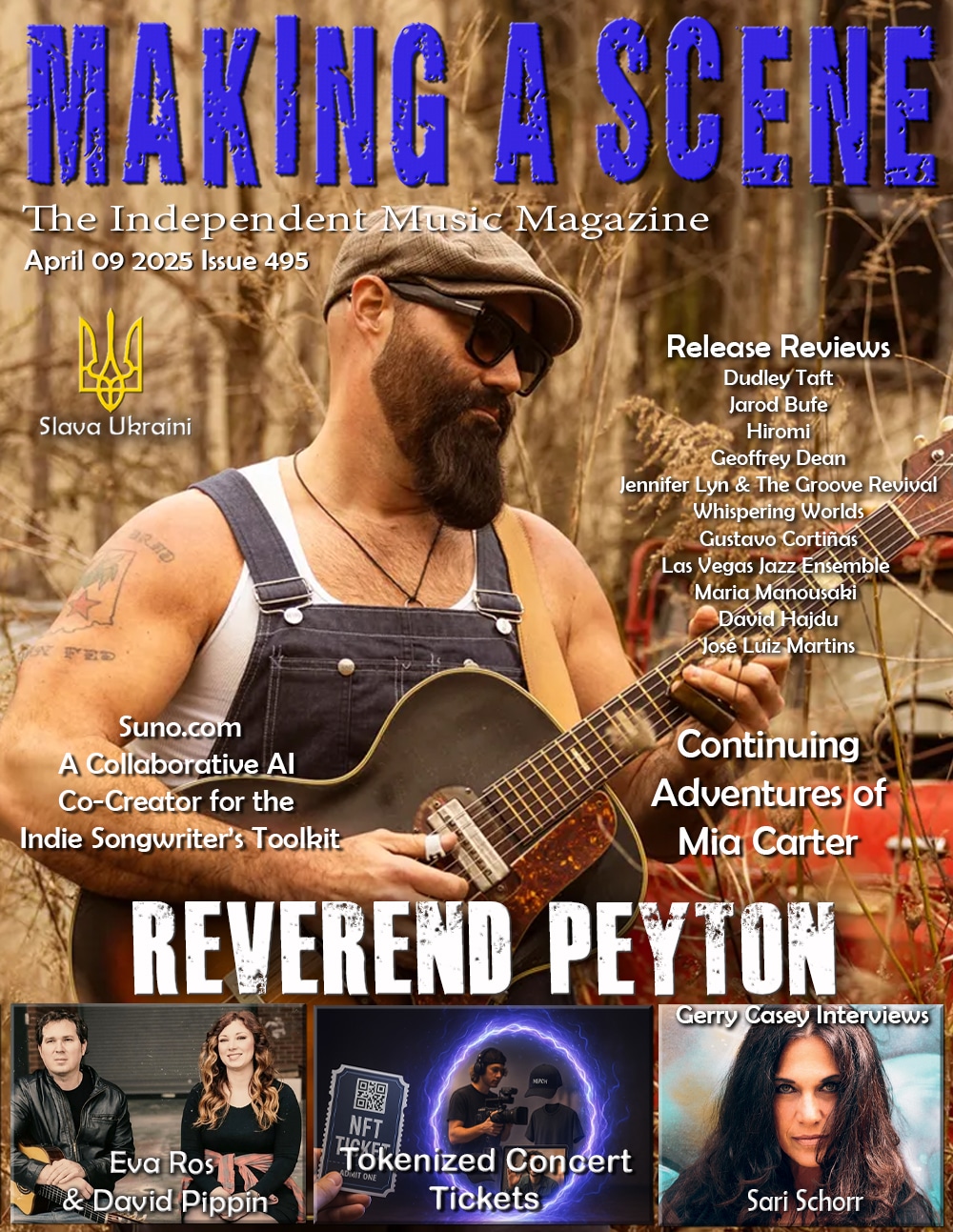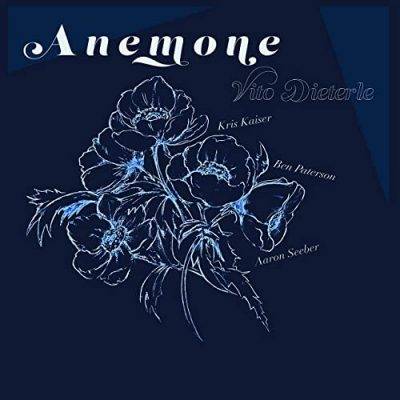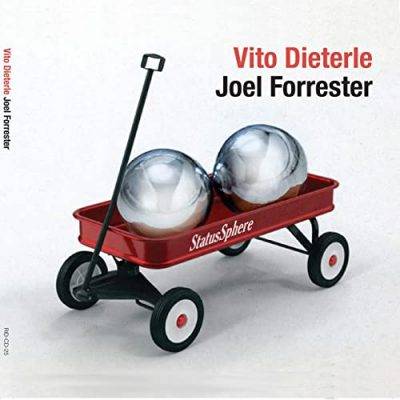Anemone and Status Sphere with Joel Forrester
Vito Dieterle
Anemone and Status Sphere with Joel Forrester
Ride Symbol
Yes, you read the title correctly. We are covering two separate albums from NYC-based saxophonist Vito Dieterle that he is choosing to release at the same time. Anemone has the classic organ quartet sound of the ‘60s while Status Sphere with Joel Forrester is a piano duet honoring Thelonious Monk.
Let’s take Anemone first. Again, Vito Dieterle is a highly lyrical tenor saxophonist who plays in a straight-ahead style, reminiscent at times of Stan Getz or Sonny Stitt. He will inevitably call to mind soul jazz saxophonists in this organ quartet as he, for example, covers tunes from Stanley Turrentine and his brother Tommy. On this set he’s joined by guitarist Kris Kaiser, organist Ben Patterson and drummer Aaron Seebler. Each solo as in the vein of those classic organ quartet albums, recalling their predecessors but stepping out with their own individual voices.
As Dieterle states, “I never wanted to change the world, but I also didn’t want to make the typical organ quarter record compiled of blues, shuffles, and obligatory pop cover. If I could just stretch the idiom a bit, maybe, but still in the swinging tradition. I think I have achieved that with a mix of material that is not often played, and in this case, played by extremely talented musicians that opened up their wonders.”
They begin with Cole Porter’s “Dream Dancing,” followed by the hard bop of Tommy Turrentine’s “You Said It” and soul jazz icon Stanley Turrentine’s “Minor Chant.” Taking issue somewhat with Dieterle’s quote above, there are at least three tunes here that are often covered; Strayhorn’s “Lush Life” and “Chelsea Bridge,” both played extraordinarily tenderly by the leader and sidemen, as well as Monk’s “Work” with all three renditions offering some new twists. They also revive Dizzy Gillespie’s “That’s Earl, Brother,” jam hard on Julie Styne’s “Just In Time” and close quietly with Dieterl’s original ballad, the title track, which he performs as a duet with Kaiser.
On Status Sphere the young saxophonist teams with veteran pianist Joel Forrester with a set of originals and covers honoring Thelonious Monk. Inevitably Dieterle’s sound will be compared to the great Monk sideman Charlie Rouse. Yet, just when you think he’s starting to sound like Rouse, he will veer away into his own individual style. For his part, Forrester knows the music exceptionally well but also has his individual style, which is smoother, less percussive than Monk (true for most pianists). They both hold each other in the highest regard with Forrester (a composer of over 1600 songs) making these comments about Dieterle in the liners – “If there’s a more interesting tenor player out there, I haven’t him/her…Vito hears my tunes. And we share a deep and abiding connection (rhythmic, harmonic, iconic) with Thelonious Monk. His sense of freedom, his swing, his involved detachment…speak to both of us, if in different ways. We knew we could pull off an unaccompanied duo recording because Monk’s time would help keep us together.”
The six Monk tunes covered are “Work” (also on Anemone), “Crepuscle with Nellie” (two takes), “Ruby My Dear,” “Let’s Call This,” “Pannonica” and “Ba-Lu-Bolivar Ba-lues Are.” The five Forrester originals are in the Monk tradition. The solos on both versions of “Crepuscle with Nellie” are quite imaginative, they bring superior balladry on “Requiem for Aunt Honey,” engage in vigorous exchanges on “Let’s Call This,” dig into a romantic mode on “About Francoise” and swing hard on “Don’t Ask Me Now,” which is based on Monk’s “Ask Me Now.”
Forrester is the leader of ten CDS on the Ride Symbol label, of which Dieterle played as part of his quintet on Furtive Sex. Dieterle has been on the New York scene for a decade now and during that period presented creative music as the owner and operator of two jazz bars: The Silver Lining and The Django.
These are artists rooted in the traditional but with truly expressive voices of their own. Dieterle is especially great on ballads. Pick up both releases if you’re a fan of straight ahead, pure jazz.
- Jim Hynes
Discover more from Making A Scene!
Subscribe to get the latest posts sent to your email.















































